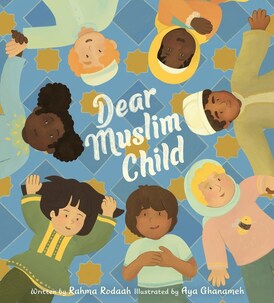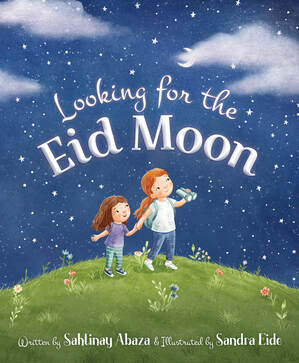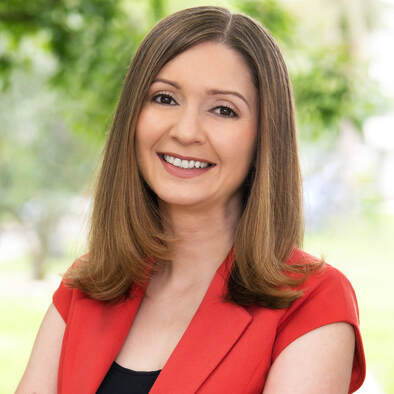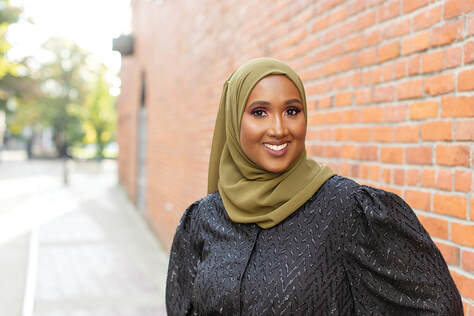|
I never imagined I would be a children’s book author. But when I became a mother of two little girls, I admired how fun and whimsical the holidays were here in the United States. The stories of Santa and his elves make you want to be a kid all over again! Unfortunately, I couldn’t find an engaging tale to read to my kids about any of the Muslim holidays we celebrate. This motivated me to write my first book. “Looking for the Eid Moon” draws upon an old Muslim tradition: the sighting of the crescent moon. Because Muslims follow the lunar calendar, they rely on the moon's shape to mark important holidays and dates. One night, the crescent moon signals the arrival of Eid al-Fitr (a holiday that celebrates the end of fast) and one night, it signals a ten-day countdown to Eid al-Adha (a holiday that celebrates the end of pilgrimage). To make the holidays special, my family adopted this tradition. And every Eid, we would take our girls on a little quest to find the moon. But the crescent moon is hard to spot, that is why there are moon sighting committees that look for it. And so, just like Sara, the protagonist of this story, I started placing our very own glow-in-the-dark “moon rocks” around the house and backyard for our girls to find. Each rock is filled with coins because, during Eid, children are gifted money so they can get a toy they really want. We found our “moon-rock hunts” to be a fun alternative for children who are too young to understand the value of money notes and bills and a great way to keep their spirits high when they fail to spot the moon. Regardless of our backgrounds and faiths, as parents, we all hope our children will have a happy and memorable childhood they can look back on for many years to come. We strive to raise strong and confident individuals who can withstand the challenges that life throws their way. That is why it is important for all children to see themselves in fun, light-hearted stories filled with hope. Stories in which a protagonist who looks like them is the hero of an exciting adventure, not a victim struggling to fit in. In “Looking for the Eid Moon,” the moon is not only a religious symbol. It is also a reminder that even in our darkest moments, we must be brave and search for that glimmer of hope. And how much like the moon, we must be a source of light for others, too. Sahtinay Abaza grew up in the United Arab Emirates before making Florida her permanent home. As a mother of two, she admired how fun and whimsical the holidays are in the United States. This motivated her to write her first picture book about the holiday her family celebrates, Eid. Inspired by her own family tradition, Looking for the Eid Moon is meant to transform the uncertainty of when Eid will fall into a quest to find the moon, in both a fun and endearing way. This story won the 2019 SCBWI Emerging Voices Award and inspired Sahtinay to write more children’s books.  What was your inspiration for Dear Muslim Child? Sometime in 2018 or 2019, I wrote a manuscript titled "Dear Black Child," and shortly after, I wrote the first iteration of "Dear Muslim Child." Both of these manuscripts were love letters I wrote watching my children. It came from a deep need to affirm their identity as Black Muslim children. Please tell us about your writing process. How long did it take you to write and sell this book? My publishing journey began as a self-published author, and I thought I would self-publish Dear Muslim Child one day, so I kept working on the manuscript for years. This book took so long to get right because I was so afraid to write something that would fall short of the goal of motivating and affirming Muslim children. It was also intimidating because I wanted to write about Islam and faith in the most precious and loving way. And so I kept returning to this manuscript repeatedly, never feeling it was ready. Then, in 2020, I signed a two-book deal with HarperCollins, and I was grateful to finally bring both these books to life with the help of my amazing editors. What are your favorite illustrations in the book? Ahh, it's such a hard question! Aya did a phenomenal job, and each page is stunning. But if I had to pick one, I would say the spread about the hijab. I was in awe of how Aya decided to draw all the different ways women observe the hijab. I was also glad it included a niqabi woman because this is seldom represented. What's the one thing you want children to take away from your book? I hope each child who reads Dear Muslim Child feels the warm embrace tucked inside each of the lines of the book. I want them to be proud of who they are, even when it's hard sometimes. Dear Muslim Child is a call to practice your faith out loud and with pride. And to the adults reading this to their children, I pray these words heal parts of your inner child who needed to hear these words. Do you have any tips for pre-published authors? Believe in your story and keep writing even when it's been months and years. It's ok to come to put some manuscripts aside while you continue to grow and learn. My biggest takeaway is that it takes time, and it's hard to wait for your moment, but if you keep walking towards that dream one day, it will be yours. Keep investing in your craft and immerse yourself in the writing community wherever you are. What's next for you? I am working on more picture books and dabbling in the world of novels in verse, which I have fallen in love with recently. I hope to be back with more book news and book celebration! *****************************************************************************************Dear Muslim Child By Rahma Rodaah, illustrated by Aya Ghanameh 9780063091993 / $19.99 hardcover On sale: February 6, 2024 Ages 4-8 / Grades pre-3 Balzer + Bray / HarperCollins DESCRIPTION:“A heartfelt love letter urging Muslim children everywhere to courageously embrace the tenets of their faith. . . . Nurturing, encouraging, and necessary.”--Kirkus Reviews From the author of Dear Black Child, this is a love letter to Muslim children that celebrates their faith and encourages them to take their rightful space in the world. Dear Muslim child, Do you know the meaning of Nur? Nur means light. Allah is light upon light. Keep walking toward that light. Gentle lyrical text and engaging illustrations depicting children and adults from a wide variety of ethnicities grace this joyful testament to the tenets of Islam and to each child’s worth and value. BIO:Rahma Rodaah was born and raised in Hargeisa, Somaliland. At the age of eight, her family immigrated to Canada where she still resides today. She is a mother of four children and enjoys reading and coming up with silly bedtime stories. She is also the author of two self-published picture books and firmly believes that children need to be able to identify themselves in the books they read. You can visit her online at rahmarodaah.com. SOCIAL MEDIA: Instagram: Balzer + Bray/Harper: @harperids Rahma Rodaah: @rahmarodaah Facebook: Balzer + Bray/Harper: HarperKidsBooks Rahma Rodaah: Rahma Rodaah Twitter/X: Balzer + Bray/Harper: HarperKids Rahma Rodaah: @RahmaRodaah Threads: Balzer + Bray/Harper: @harperkids Rahma Roddaah: @rahmarodaah |
Archives
July 2024
Categories
All
|



 RSS Feed
RSS Feed



